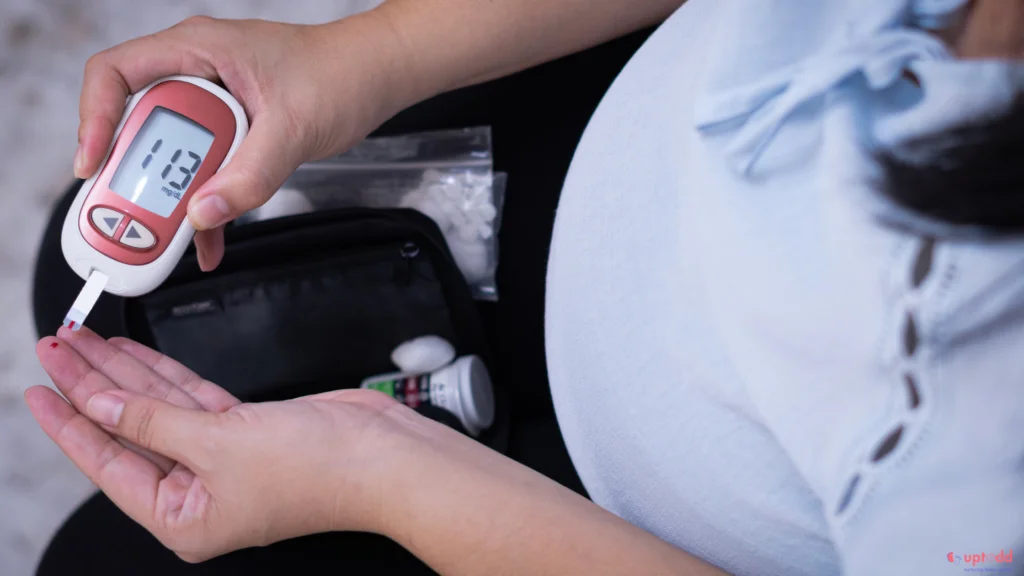
Pregnancy problems
Topic
Pregnancy problems
May start as early as
The First Trimester
─────────
May End Around
The Third Trimester
Back pain, swelling, nausea, mood swings, peeing too much! Sounds familiar? These are some of the pregnancy problems that can make it tough for women to relax and enjoy their pregnancy journey. If you can relate, you have come to the right place. Through this blog, we aim to help you navigate this rollercoaster pregnancy journey with peace and confidence.
First, let us give you a quick overview. Your body goes through a lot during pregnancy as it is working hard to support not just one, but two lives. Your body might take some time to adapt to them. While these changes are natural, they can sometimes lead to certain health issues that are not always a cause for concern. So let us guide you about some of these common pregnancy problems and ways to manage them, so you can feel more at ease and truly enjoy this incredible journey.
In this Article:
Day-to-day health problems in pregnancy

Your body is changing to accompany and support the little one developing inside you. This might lead to many kinds of health problems and discomfort. This may include constipation, leg cramps, hot flashes, skin darkness, headaches, backaches, and the most tiring of them all – which is peeing a lot more than usual. These uncomfortable bodily changes usually happen due to hormonal imbalance and the body’s adaptability for the baby.
Here are a few things to help deal with such day-to-day health problems in pregnancy:
- Avoid standing up for long periods
- Include high-fiber foods in your diet
- Practise light exercise daily
- Include loose clothing made of natural materials like cotton in your wardrobe
- Stay hydrated throughout the day
- Don’t stay outside in the sun for a long time
Nausea is another common health issue during pregnancy, commonly known as “morning sickness.” Some women may suffer from its intense form, Hyperemesis Gravidarum. Hyperemesis Gravidarum is diagnosed when a pregnant woman experiences intense, continuous nausea and vomiting, which is more severe than “morning sickness”. This might result in weight loss and dehydration, and treatment may be required. A diet of bland fluids and lots of liquid, along with medical treatment might help manage this.
References from Common Health Problems in Pregnancy
Common pregnancy health problems
Gestational Diabetes

Gestational diabetes appears only during pregnancy. During pregnancy, hormonal changes can make it harder for the body to process the blood sugar levels. But the good part is that this condition can be easily managed with diet and exercise and usually gets resolved after your baby is born.
Placenta previa
The placenta is an organ that carries oxygen to the baby inside the womb. Placenta Previa occurs when the placenta covers part of the opening of the cervix, which is the opening between the uterus and vagina. This can lead to painless bleeding during the second and third trimesters. It is always important to inform your doctor if you notice any vaginal bleeding or even spotting during your pregnancy.
Reference from 4 Common Pregnancy Complications
Hypertension (High Blood Pressure)
High blood pressure before and during pregnancy can cause a serious health issue known as preeclampsia. Preeclampsia results in sudden high blood pressures, usually after the 20th week of pregnancy, which may lead to organ damage, often to the liver, lungs, heart, and kidneys. Some signs of preeclampsia may include severe headache, swelling of the hands and face, abdominal pain, blurred vision, and dizziness.
Iron Deficiency Anemia
Iron is an important element of the hemoglobin that helps blood to carry oxygen throughout the body. When there’s an iron deficiency, the body can’t produce enough red blood cells, leading to symptoms like fatigue, weakness, and paleness. It’s common in pregnancy because you need more red blood cells to carry oxygen to the fetus.
Reference is taken from What health problems can develop during pregnancy?
Infections During pregnancy
Urinary tract infection (UTI)
A urinary tract infection (UTI) during pregnancy is a bacterial infection that affects the urinary system. Its symptoms include a burning sensation during urination, frequent urges to urinate, lower abdominal pressure, foul-smelling urine, and sometimes fever or back pain. It is important to consult a doctor if you face any such symptoms as untreated UTIs can lead to serious complications, including kidney infections, which can be harmful to both the mother and the baby.

Other infections
During pregnancy, certain infections can be particularly harmful. These include HIV, viral hepatitis, sexually transmitted diseases (STDs), and tuberculosis (TB). Infections can lead to complications such as preterm birth, low birth weight, and congenital infections. To manage infection risks during pregnancy, it is necessary to practice good hygiene, avoid certain foods, and consult healthcare providers regularly.
References from What health problems can develop during pregnancy?
Mental health problems during pregnancy
Pregnancy is often seen as a happy time, but it may also bring mixed emotions and mental health challenges for many women.

Depression
Depression in pregnancy may cause difficulties as it may hinder the ability of mothers to take care of themselves or their unborn baby. Its symptoms may include continuous sad mood, sudden loss of interest in activities that used to be enjoyable, changes in appetite, sleep patterns, and energy levels, difficulty in thinking, concentrating, or making decisions, and negative feelings and thoughts.
When several of these symptoms appear at the same time and continue for more than two weeks, it can be diagnosed as depression. It is important to talk to your doctor before labeling it.
Anxiety and Fears
Anxiety during pregnancy involves excessive worry and fear about various aspects of pregnancy and motherhood. It can make you feel constantly on edge and interfere with your daily activities. It may also include muscle tension, irritability, breathing difficulties, and sleep disturbance.
Pregnancy may also bring up many fears, from concerns about becoming a mother to worries about childbirth and your baby’s health. These fears are normal but can be overwhelming for a soon-to-be mothers. It is of utmost importance to take care of your health with a few strategies:
- Eat a balanced diet
- Engage in activities that you love
- Practice pregnancy-safe exercises and yoga
- Share your worries and fears with family, friends, or a healthcare provider.
- Get regular sleep
- Self-care is a must
References from Mental health in pregnancy
Final Words
Managing health during pregnancy is very challenging for some but some may not face health issues. It is always important to prioritize your mental and physical well-being. Taking proactive steps and having regular checks can help ensure a smoother and healthier pregnancy experience.
Enjoy this wonderful phase of your pregnancy but don’t forget to take good care of yourself as a new life is going to be born soon.
Explore UpTodd to unleash hidden abilities of the baby.
Research & Resources
- https://www.nhs.uk/pregnancy/related-conditions/common-symptoms/common-health-problems/
- https://www.hopkinsmedicine.org/health/conditions-and-diseases/staying-healthy-during-pregnancy/4-common-pregnancy-complications
- https://www.nichd.nih.gov/health/topics/preconceptioncare/conditioninfo/health-problems
- https://www.rcpsych.ac.uk/mental-health/treatments-and-wellbeing/mental-health-in-pregnancy






